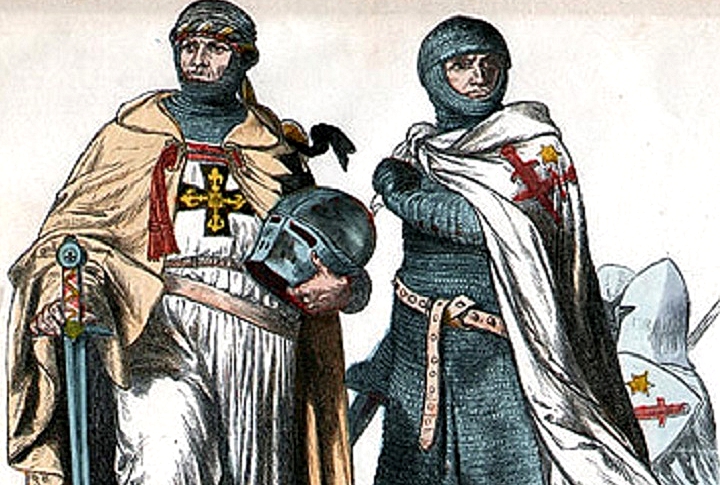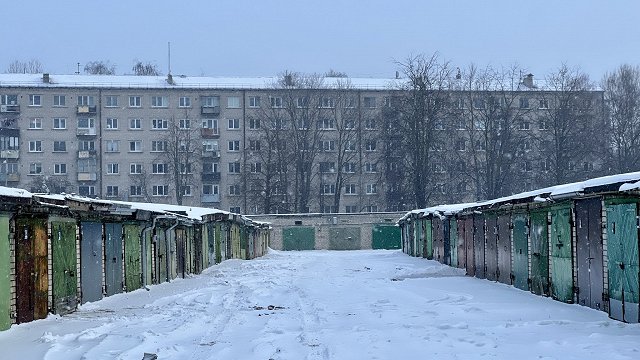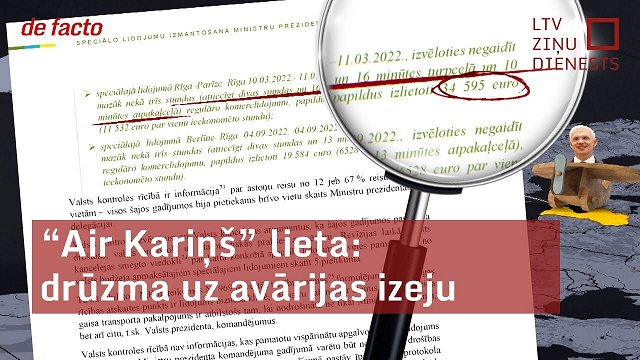Beheadings, mass slaughter, martyrdom, religious fundamentalism, forced conversions, high-profile hostages, foreign volunteers fuelled by religious zeal (or a taste for adventure), propaganda, powerful clerics, questionable claims to statehood, tribes in a flux between civil war and alliance, interventions by great powers: these have become staples of the coverage given to Daesh's gruesome antics in Iraq and Syria.
Latvian expertise on the subject is assumed to be limited solely to the researches of NATO's Strategic Commnications Center of Excellence (STRATCOMCOE) based in Riga, which has produced some interesting data on how Daesh spreads its message via social media.
It's also become popular to characterize Daesh as a Medieval organization making use of twenty-first century technology. And that is what leads us to what might be the closest historical precedent for what is currently happening in the Middle East and provides us with a thought-provoking parallel: the Northern Crusades of the 13th century, particularly in Livonia (roughly present day Latvia and Estonia).
While the Crusades to the Holy Land are well known, the Northern Crusades to conquer and convert the inhabitants of the Baltic littoral remain fairly obscure. The first stop for anyone interested in the subject should be Eric Christiansen's marvelous history of the period from the publishing of the Papal Bull (the jihad of its day) authorizing the crusades, through the formation of the Livonian Sword Brothers, who seem to have been a brutal and ragtag bunch (their first leader, Wenno, had his head lopped off in a Cesis bar fight), their land grab and eventual takeover by the better-organized but no less brutal Teutonic Knights.
The modus operandi of Daesh and the Sword Brothers is strikingly similar: first terror-inducing raids, then arrival in force and giving the inhabitants of a village a simple choice - convert or die.
The quotation at the top of this page comes from the Chronicle of Henry of Livonia, a wonderful contemporary work by a missionary priest which reads like a war diary of conquest and conversion. The ones doing the slaughtering in that passage are not the heathens but Lettish converts marching into still-pagan Estonia in order to further extend Christendom. It continues:
"On the following day, after all the villages had been colored with much pagan blood, they returned. Collecting many spoils from the villages, they took back with them the beasts of burden, many flocks and a great many girls, whom alone the army was accustomed to spare in these lands."
In case one thinks such rapine and carnage was somehow over-enthusiasm on the part of the killers, Henry points out that they celebrated the victory with a Sword Brother named Berthold, a priest, and that "all, without exception joyfully blessed God because through new converts the Lord had taken such vengeance, even on other nations."
All that's lacking is a few AK-47s being fired into the air.
Just as Daesh justifies its hell as the means of bringing about a universal Islamic heaven, so the crusaders believed that they were doing the Baltic tribes a favor in the long run. As Henry puts it:
"Certainly, through the many wars that followed, the pagans were to be converted and, through the doctrine of the testaments, they were to be told how they might attain to the true Peacemaker and eternal life."
Any crusaders killed on the job were guaranteed a place in heaven, as with modern-day suicide bombers. This was particularly useful as it meant that while the leading scions of each noble family could win their place in heaven crusading in the Holy Land, even second sons and the most dimwitted aristocrats stood a chance of doing the same if they answered the recruiting call delivered from pulpits across Christian Europe and embarked on a tour of duty Balticside.
Crusading was an expensive business after all, with crusaders needing to bring their own equipment and servants, and the Northern Crusade sometimes seems like a sort of cut-price Baltic package deal compared to the full luxury-spec Palestinian holiday in the sun with Saladin.
No wonder that like Daesh, the Sword Brothers quickly realised that controlling the economy was just as important as military prowess, setting up their own local administration and tax-collection structures. In theory they were allowed to keep one third of the lands they conquered, with the rest going to the church. In practice they kept rather more.
And just as Daesh likes to depict its own actions as justified but those of everyone else as savage, so Henry tells us of the sad fate of two converts:
"Thus it was that by a conspiracy of the Livonians, their feet were bound by ropes and they were cut through the middle. They afflicted them with most cruel punishments, tore out their viscera and cut off their arms and legs. There is no doubt that they received eternal life for such martyrdom."
On the other hand, after one skirmish near Turaida it was perfectly fine for the head of a local chieftan named Ako to be presented to Bishop Albert as a sign of victory, with Henry informing us Albert was delighted with the gift as he had just finished saying Mass.
Yet at times, reading between the lines of Henry's chronicle, one gets the sense even he is uneasy with the level of carnage generated by the Sword Brothers.
Nor do the parallels end there, with some assuming a certain grim irony given current events in Syria - itself a former crusader destination. Every now and again opportunistic Russian princes cross the borer and intervene in Henry's narrative, playing the other sides off against each other. Sounds familiar.
Those 'other sides' also include an uneasy alliance involving the great military powers of the time with Danes, Poles, Germans and even a future King Henry IV of England who spent a year besieging Vilnius to earn papal points.
To further legitimize their takeover of Livonia and cosy up to the Pope in the hope he might bankroll them a bit more generously, the crusaders attempted to name the conquered lands "Terra Mariana" (Virgin Mary's Land), a name that rather like "Islamic State" was more of a hopeful advertising pitch than an objective reality.
800 years on, the President of Latvia is proud to hand out a facsimile history of Terra Mariana even to the President of Estonia.
Hopefully in another 800 years Daesh will be no more than a bloody and nauseating footnote to history. But should we become complacent about the staying power of religious fundamentalism it is worth remembering that these days, the defeat of the Sword Brothers at the Battle of Saule in 1236 is celebrated every year in Lithuania - the last place in Europe to be Christianized and now one of the most solidly Catholic countries in the world.






























